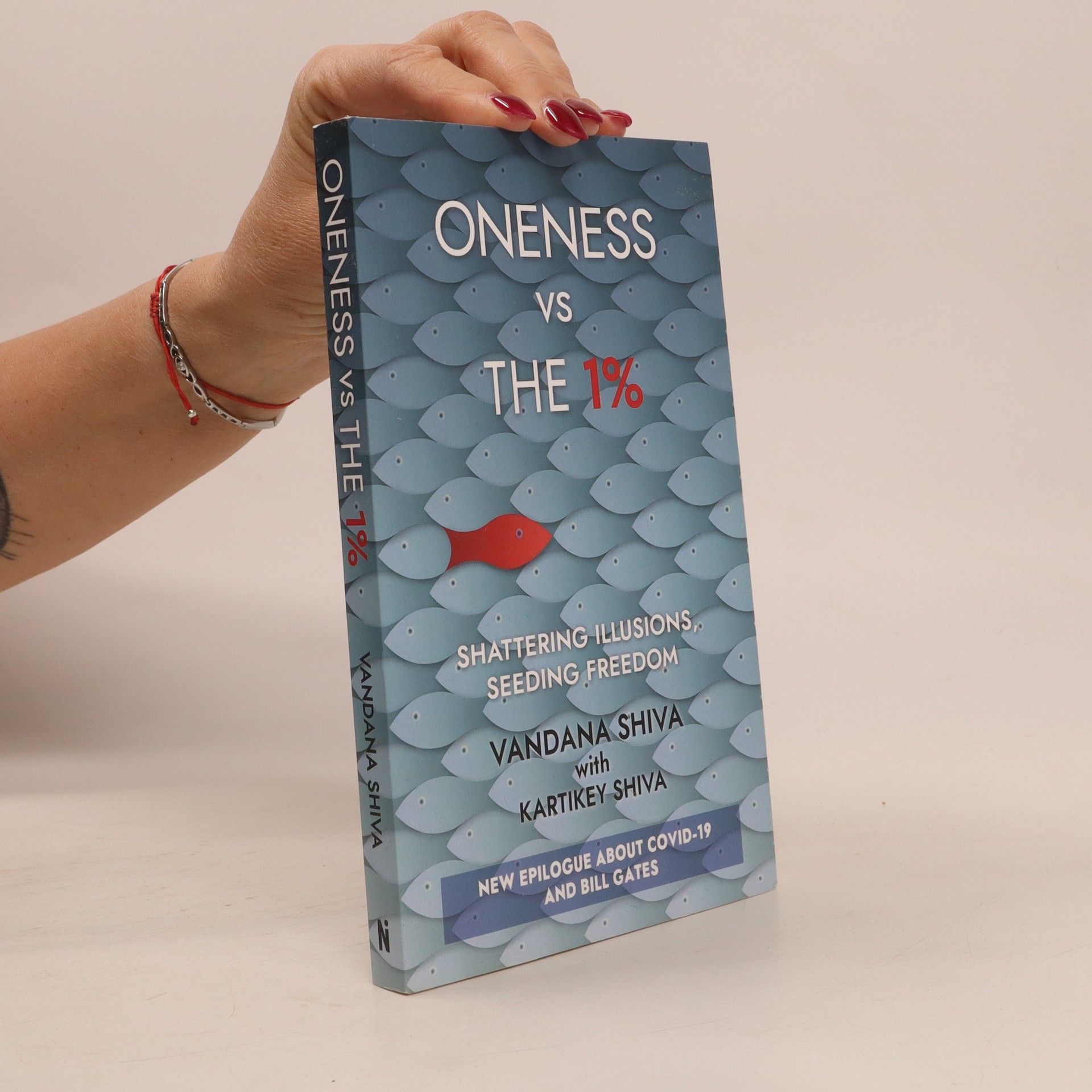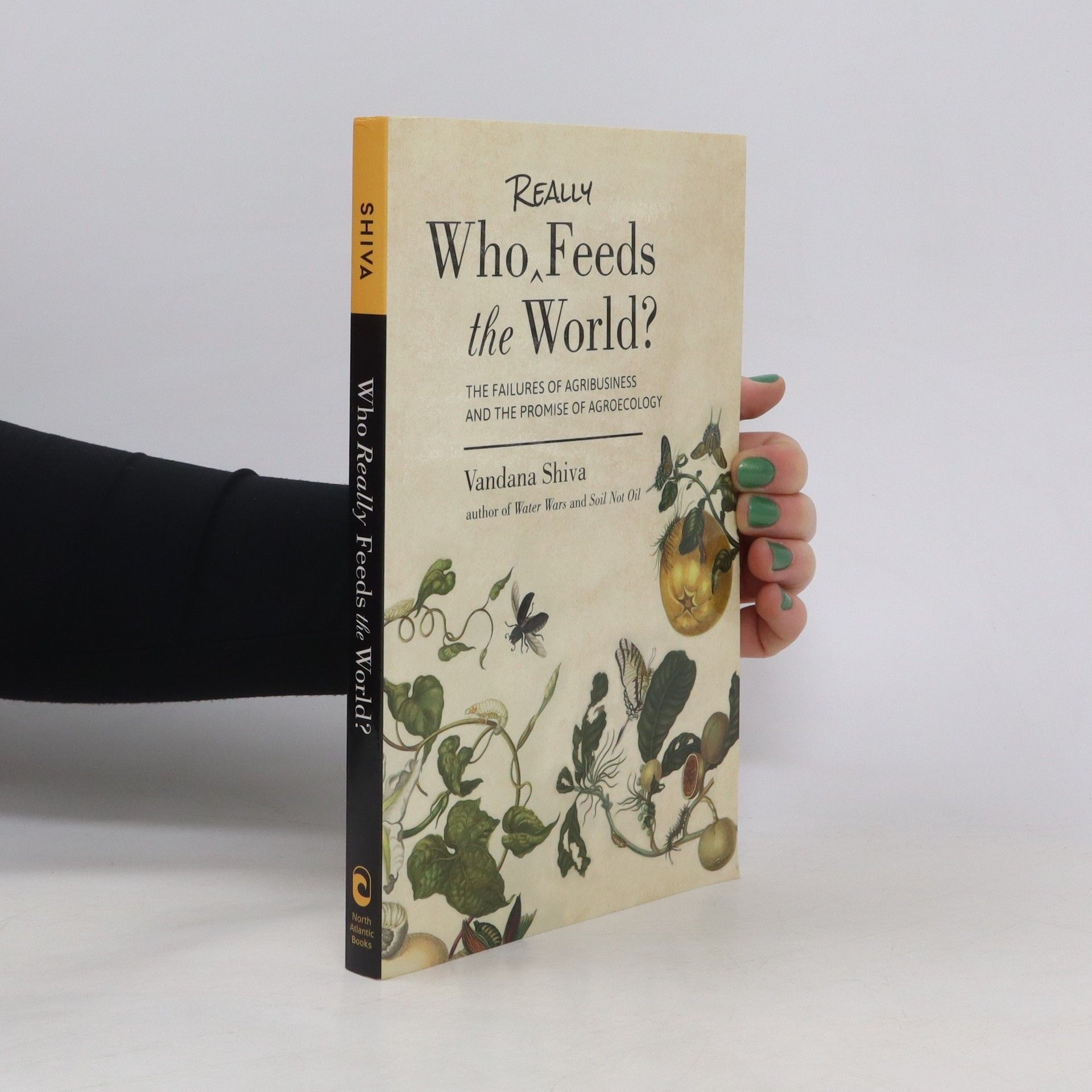Focusing on the urgent need for sustainable living in the face of climate crises, the book emphasizes the importance of reconnecting with nature, particularly through our food systems. It advocates for a return to practices that honor the Earth and promote ecological balance, highlighting the critical relationship between humanity and the environment.
Vandana Shiva Book order (chronological)
A pivotal figure in the alter-globalization movement and a leading voice in global Ecofeminism, Dr. Vandana Shiva's work champions human rights, ecology, and conservation. Her intellectual journey, initially rooted in physics, quickly turned towards pressing ecological concerns. She explores the intricate connections between nature and society, advocating for a more sustainable and equitable world.







In Agrarökologie und regenerative Landwirtschaft zeigt Vandana Shiva die wahren Kosten des industrialisierten landwirtschaftlichen Produktionsmodells auf – von den negativen Auswirkungen auf die Umwelt, die Wirtschaft und die menschliche Gesundheit. Wir können es uns nicht leisten, diesen Weg weiter zu beschreiten. Shiva zeigt uns, wie zwingend notwendig es für die Menschheit ist, eine regenerative Landwirtschaft zu betreiben. Eine Pflichtlektüre für alle, die sich Sorgen um unsere Zukunft machen.
In diesem Buch werden Beweise zusammengetragen und die Gefahren aufgezeigt, die von philanthropischen »Entwicklungen« ausgehen, die von Konzernen und einzelnen Milliardären in den Bereichen Agrartechnologie, Ernährung, Wissen und globale Gesundheitssysteme betrieben werden. Diese Art von Philanthropie ermöglicht es einigen wenigen »Auserwählten«, Informationen und die Politik für ihren eigenen Profit zu manipulieren und damit Demokratien und Gesellschaften auf der ganzen Welt zu untergraben. In den letzten 30 Jahren hat sich der Philanthrokapitalismus zu einer entscheidenden Kraft entwickelt, die in der Lage ist, die internationale Agenda auf das falsche Gleis zu setzen, unsere Zukunft zu zerstören und unseren Planeten in den ökologischen Zusammenbruch zu führen. In diesem Buch sehen wir, wie die Muster der technokratischen »Lösungen« durch »philanthropische« Aktionen beschleunigt umgesetzt werden, vorangetrieben von einer unheiligen Allianz von Großkapital, Wissenschaft und Technologie, Institutionen und Staaten und entscheidend beeinflusst vom Großen Geld.
The Fight Against Monsanto's Roundup: The Politics of Pesticides
- 384 pages
- 14 hours of reading
The book addresses the urgent issue of environmental and health hazards caused by corporate negligence, urging readers to recognize the dangers of pollution and toxins. It emphasizes the need for education and activism, inspiring a collective movement against profit-driven practices that endanger both human health and the planet. Through well-researched insights, it calls for awareness and action to combat these pressing challenges.
Agroecology and Regenerative Agriculture
- 355 pages
- 13 hours of reading
The book is an interdisciplinary synthesis of research and practice carried out over decades by leaders of the agroecology and regenerative organic agriculture movement. It provides detailed analysis of the multiple crises we face due to chemical and industrial agriculture, including land degradation, water depletion, biodiversity erosion, climate change, agrarian crises, and health crises. The book lays out biodiversity based organic farming and agroecology as the road map for the future of agriculture and sustainable food systems, both locally and globally. With detailed scientific evidence, Agroecology & Regenerative Agriculture shows how ecological agriculture based on working with nature rather than abasing ecological laws can regenerate the planet, the rural economy, and our health.
Wahre Wirtschaft
Von der Geldgier zu einer Ökonomie der Fürsorge
Lessons from the Hindu culture are used to teach the world methods of sustainability.
In 'Thrive. Fundamentals for a New Economy', Kees Klomp and Shinta Oosterwaal provide insights into alternative approaches to economics that are sustainable and just for both society and the planet in the long term. In twenty-four essays, internationally renowned economic thinkers like Kate Raworth, Charles Eisenstein, Clair Brown, Helena Norberg-Hodge and Daniel C. Wahl, share the alternatives that are available to us, such as doughnut economics, wellbeing economics, common good economics, regenerative economics, buddhist economics, commons economics, local economics, bioregional economics, indigenous economics and degrowth economics. Each of these approaches provides a realistic and enticing vision of a thriving future. ‘Thrive’ offers readers the fundamentals for a new economy that is rooted in the well-being of humanity and of our planet. This book is a must-read for anyone in search of economic perspectives that contribute to a flourishing world.
